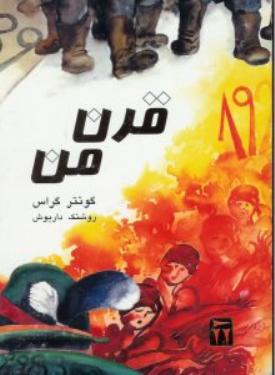قرن من
گونتر گراس برای تک تک سال های یک قرن، داستانی به وجود آورده است. او درباره ی اتفاقات بزرگ و رویدادهای به نظر بی اهمیت، تحولات فنی و اکتشافات علمی، دستاوردهای فرهنگی و ورزشی، خودبزرگ بینی انسان ها، شکنجه و کشتار، جنگ و فجایع و در نهایت، شروع های دوباره می نویسد. اگرچه هر بخش از قصه، راوی جداگانه ای دارد، داستان ها در مجموع به هم پیوسته و روایتی کامل و خطی تشکیل می دهند که در آن، فردیت انسان در کانون توجه قرار دارد. با پیشروی داستان، تصویری زنده و پرجزئیات از تمامی فراز و فرودهای یک هزاره از تاریخ انسان ها نمایان می گردد. در رمان قرن من ، صد بخش داستانی، به هم پیوسته و رمان قرن را تشکیل می دهند. به دلیل آلمانی بودن گونتر گراس، قرنی که او در رمان قرن من به آن اشاره دارد، سرنوشت صد سال اخیر آلمان نیز هست؛ حقیقتی که ممکن است برای مخاطبینی که با پیچیدگی های تاریخ آلمان آشنایی ندارند، کمی دلهره آور و شوکه کننده باشد. به عنوان مثال، داستان «1900» مخاطب را از منظر سربازی آلمانی، به دل اتفاقات قیام مردمی چین می برد؛ داستان «1903»، روایت گر زندگی دانش آموز جوانی است که پرواز اولین بالن هوایی را تماشا می کند، جدیدترین کتاب توماس مان به نام بودنبروک ها را می خرد و در مراسم آغاز به کار بزرگترین کشتی ساخت بشر[امپراتور]شرکت می کند. داستان «1904» به اعتصاب کارگران معدن پرداخته و «1906»، روابط خارجی آلمان و مراکش را مورد توجه قرار می دهد. کتاب قرن من، با در هم آمیختن داستان، تاریخ و زندگی نامه، یکی از بهترین آثار گراس به حساب آمده و گواهی است بر این موضوع که جایزه ی نوبل در دستان کسی قرار گرفته است که لیاقت و شایستگی آن را دارد.
A collection of one hundred inter-linked stories celebrating the twentieth century, by Germany’s most eminent contemporary writer. As the sequence of stories unfolds, a lively and rich picture emerges, an historical portrait of our century in all its grandeur and in all its horror.






